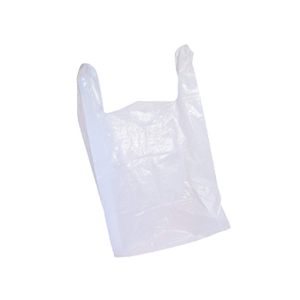Biodegradable plastic bags are manufactured using biodegradable materials using a proprietary manufacturing process. The manufacturing process involves converting potato plant-based carbohydrates into a natural, amorphous bio-based polymer. The process then fuses the polymer with conventional, recycled, and bioplastics to enhance its durability and lightweight properties while ensuring biodegradability.
Sustainable and Eco-Friendly Packaging
The enhanced film strength of these plant-based plastic bags allows for reduced thickness, making them more durable than their fossil-fuel-based counterparts. The process fuses plant-based polymers with select conventional plastics through proprietary manufacturing, producing highly durable and lightweight bags.
When disposed of in the soil or ocean bed, they disintegrate into biomaterial, allowing for recycling over multiple cycles. This significantly reduces the likelihood of plastic pollution and its environmental impact. With a focus on reducing carbon footprints, biodegradable bags contribute to a cleaner and greener future by minimising the need for plastic sourced from fossil fuels.
Facilitating Environmental Responsibility
Additionally, these bags promote biodegradation without fragmentation and facilitate PBAT (Polybutylene Adipate Terephthalate) to biodegrade even in simulated marine environments, lowering the required temperature.
Certified by TUV OK compost and recognised as 100% USA Certified biobased products, these biodegradable plastic bags embody sustainability and environmental responsibility. Minimising environmental issues in the supply chain is a key focus, and biodegradable plastic bags can replace conventional plastics.
- Designed to naturally break down in the environment over time
- Made from renewable plant-based materials
- Comparable physical properties to traditional plastic bags
- Manufactured with eco-friendly processes
- Compostable in industrial facilities
- Suitable for home composting, though the timing may vary
- Decomposes through the action of microorganisms, sunlight, and moisture
- Forms natural substances during decomposition
- A potential alternative to non-biodegradable waste accumulation
- Proper labelling for consumer identification and disposal


